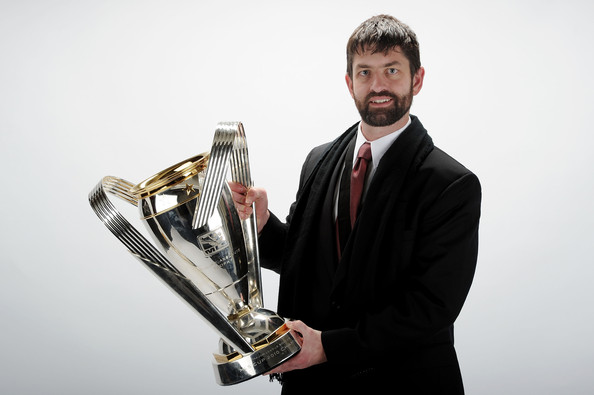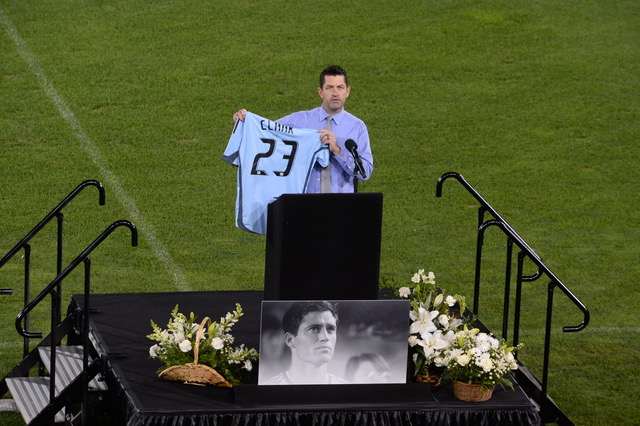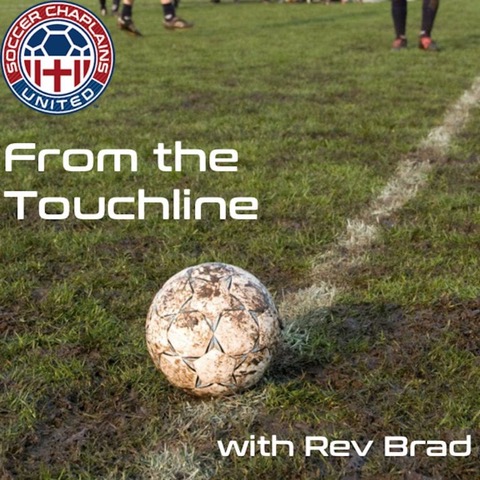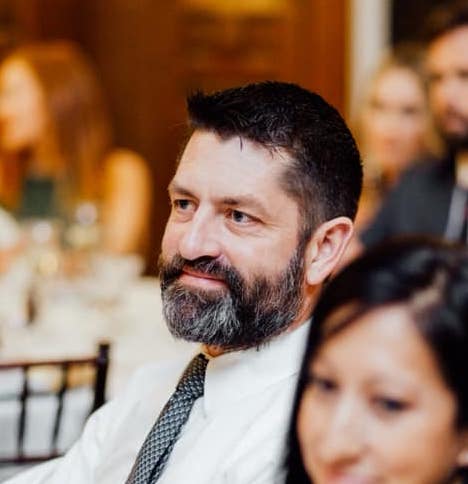Twenty Years In

Twenty years ago, as a press officer for the Colorado Rapids, I walked out on the soccer pitch and had what I call my ‘Saint Martin’ moment.
A footballer asked me a harmless but longingly curious question. Time slowed. Noise faded into the background. The heavens seemed to part. It was an opportunity to share how my faith and relationship with God informed my life and practice. Back at the hotel that evening, I prayed, “God, give me more opportunities to share…”
Leaving my job just a few months later, I enrolled in seminary. A one-month newlywed, the tragic events of 9/11 collided with my first day of seminary. I wondered what condition the world might be in if and when I ever graduated. But just a few months later, God answered my prayer and opened a door for me to return to the team as volunteer chaplain.
Fast-forward twenty years and much in the landscape of North American soccer has changed. The top flight of professional soccer that once had only ten teams will have grown to 30 by 2023. A new women’s league is ever-forming with 10 teams next year. The lower divisions of professional men’s soccer are surging as smaller cities vie for opportunities to have a pro club — more than 100 teams, with expansion and growth opportunities in abundance.
I mentioned my “Saint Martin” moment above. Here’s what that means. Saint Martin had a pivotal, life-changing moment when he saw a naked, vulnerable beggar on the road and he cut his cloak in half, covering him. Jesus appeared to Martin in a dream that night saying, “Martin…has clothed me with this cloak.” This story is critical for chaplains, especially chaplains in sport, because the very etymology for “chaplain” and “chaplaincy” derives from Martin’s history. I study, learn, and reconcile my work and calling with his life forming and informing my chaplaincy praxis.
Colorado Rapids
I draw personal parallels between Martin clothing the vulnerable man and my own conversation on the field with that athlete. Martin, still a Roman soldier, hadn’t yet been baptized. Like Martin, I wasn’t a chaplain, but a work had begun. In my tenure as volunteer chaplain to the Colorado Rapids there have been many memorable moments and people often comment on how cool this role must be. Certainly, there are many highlights. 2010 stands out. The Rapids won the championship. It was special to spend time with the team leading up to the championship match. I felt tremendously honored to receive a championship ring.
As fun as the thrill of winning was, it’s the difficult spaces that continually validate that ‘Saint Martin’ moment of so many years ago. It’s the late-night visit, praying and thereby “covering” an athlete and spouse whose newborn has been hospitalized. It’s leading a funeral service in a stadium for a former-player who passed away at 35. It’s sharing tears with someone who has been served divorce papers. It’s sitting in a hospital waiting room with family—a season, a career, a life, in the balance.
But chaplains aren’t only there for times of crisis. We celebrate wins, successes of the teams and individuals. We are privileged to counsel and marry young couples. We are blessed to open our lives and homes and to share hospitality with those far from home. We get to pray with people, some for the first time. We share laughter and life together with those in soccer, all the while representing God to them and trying to point toward Jesus.
Today, my work as a volunteer chaplain looks a little different. The first fifteen years was a balance between vocational work (as hospice chaplain) and being a pastor. Those years were critical for learning and growing as a minister. But the call of God to serve those in soccer has been a growing burden. Now, my time is shared between the club and growing chaplaincy in North American soccer, but with an eye beyond those borders.
Soccer Chaplains United
As founder and director of Soccer Chaplains United (SCU), much of my work these days involves discovering, placing, and developing chaplains across all levels of the game. The task is actually impossible, as all God-sized plans are. We have hundreds of professional teams without chaplains, and thousands more at youth, college, and high school levels. And yet our hope is to place chaplains, to place ‘Martins’, in each of these places to cover those hurting, broken, and vulnerable with the love and light of Christ.
It is a challenge. Some are skeptical about the work and service of a chaplain. Some have never experienced chaplaincy. Some are resistant to religious and faith expressions. Some have had bad, past experiences with Christian sports ministry. Some believe their own staff capable of providing what a chaplain might. Ours is a work in progress.
SCU chaplains are certainly a diverse bunch. We come from different Christian traditions and backgrounds. Many are ordained pastors, and most serve in other ministries or capacities. But we are united by a common code and a shared vision to provide spiritual care, wise counsel, and meaningful service to people in soccer. Taking our lead from historical figures like Saint Martin, we aim to have integrity, to serve and care well — to see the hurting and vulnerable and to ‘clothe’ them at the point of their need.
20 years later, I still pray that prayer I once prayed, “God, give me more opportunities to share…” — my life, my faith, my heart — like Martin once did. I hope to see more and more ‘Martins’ mobilized to serve the world of soccer. I hope to see and serve and love those vulnerable and desperately calling out for someone to have compassion on them.
Saint Martin had a pivotal, life-changing moment when he saw a naked, vulnerable beggar on the road and he cut his cloak in half, covering him. This story is critical for chaplains because the very etymology for “chaplain” and “chaplaincy” derives from Martin’s history.
— BRAD KENNEY

When Brad speaks, such as at this funeral he led for a former Rapids player, people listen.
Listen to the companion podcast.

Check out Brad’s podcast on behalf of Soccer Chaplains United called “From the Touchline.”

When others speak, Brad listens.


